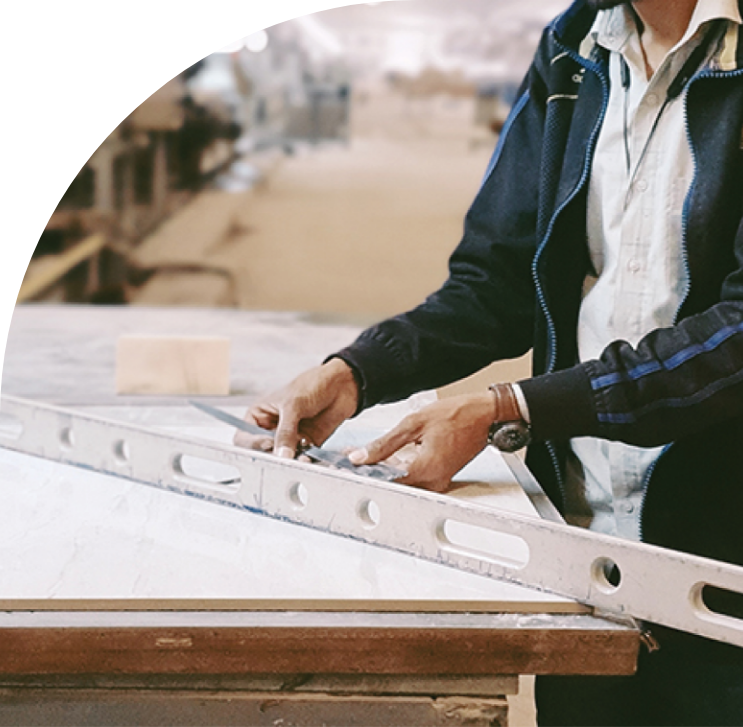Quality Control
"QUALITY IS NOT AN ACT, IT IS A HABIT." – ARISTOTLE
Quality Control is an indispensable and meticulously invested aspect of the manufacturing process at Thinlam Surface, where we take proactive measures to ensure the safety and suitability of our exported porcelain tiles. Our commitment lies in complying with stringent standards, minimizing product failures, and surpassing the quality control benchmarks set for our tiles
Transparency is the cornerstone of our operations, and we go above and beyond to meet our customers' requirements. At Thinlam Surface, we constantly strive to enhance the effectiveness of our quality management system and deliver unmatched products and services.
As a testament to our dedication to quality, Thinlam Surface operates in accordance with ISO 9001:2015, the latest version of the quality management standard. Our Tiles Testing Laboratory is accredited through affiliation with a Quality Management System (QMS).

TO ENSURE THE HIGHEST LEVEL OF QUALITY, WE FOLLOW THESE ESSENTIAL PRACTICES:
Setting and reviewing measurable quality objectives and targets that address the risks and opportunities within our company, ensuring their fulfilment.
Allocating necessary resources and clearly defining responsibilities and authorities throughout our organization
Diligently monitoring the conformity of our products to industry standards and contractual requirements.
Regularly reviewing the effectiveness of our quality management system, continuously seeking opportunities for improvement, and actively soliciting structured feedback from our valued customers.
Upholding unwavering adherence to specified methods and our customers' requirements in every facet of our operations.
At Thinlam Surface, our unwavering commitment is to deliver porcelain tiles of exceptional quality. By prioritizing preventive measures, compliance with standards, and continuous improvement, we ensure that our customers receive products that exceed their expectations. We take pride in instilling confidence in the reliability, safety, and excellence of Thinlam Surface as a trusted brand in the industry.
These quality control parameters play a vital role in ensuring the quality, consistency, and compliance of porcelain tiles with industry standards. They help maintain the integrity of the tiles, contribute to their visual appeal, and facilitate proper installation and long-term performance.


